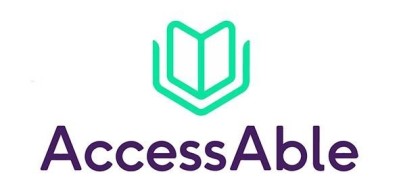Acute Assessment Unit
About us
When you have to spend the day at Kingston Hospital for a procedure, we want to make that day as straightforward and stress-free as possible.
Most of the surgery carried out at the hospital takes place in the Day Surgery Unit. The Day Surgery Unit (DSU) is located on the ground floor, next to the car park, and we make it easy to move from reception to the ward area, on to theatre and recovery and back again.
Preparing for a procedure
What to bring
Please be sure you have packed:
- Your admission letter and contact details for your GP and next of kin
- All medications you are taking
- A little cash in case you want to use the bedside TV and phone
- Proof of entitlement to free travel
- Loose, comfortable day clothes
- Your glasses, contact lenses and hearing aid
- Any mobility aids
- A hairbrush or comb
- Your Blue Badge, if you have one
- Books and magazines
Do not bring:
- Large amounts of cash, jewellery or other valuables
- Alcohol
- Food
- Large bags or suitcases
Remember to:
- Tell family and friends where you are going
- Remove nail polish and false nails
You should arrange for someone to collect you when you are discharged, and for any support you need at home.
Fasting
See fasting before surgery for what you need to know about stopping food and drink (fasting) before an operation. If you do not follow these instructions, it could affect the anaesthetic process and your operation may be cancelled.
When you are here
Please come to Day Surgery Unit reception, where you will be met and shown to your bed by a nurse. By the bed you will have a chair, cabinet and locker.
The nurse will measure your vital signs and complete a pre-operative checklist. You will need to put on a hospital gown and you may have to wear anti-embolism stockings.
You will be seen by the team performing your operation. They will explain what is going to happen and answer any questions you have.
You will also meet a doctor from the anaesthetics team. They will ask about your health and current medication and discuss the best type of anaesthesia for you and the procedure you are having. If you have any concerns about anaesthesia, this is the time to discuss them.
You may have to wait some time for your operation; this depends how long each procedure on the list before you lasts. Please be patient.
Operating theatre
You may walk into the operating theatre or be wheeled in on a trolley. In theatre the lights are bright and there will be lots of technology, including the anaesthetic machine and monitoring system. There may also be several people dressed in blue theatre clothes.
This is the team who will be looking after you. They will have discussed all their cases in detail; we use a World Health Organisation checklist to ensure everything runs smoothly.
It is normal to feel nervous but you will meet the anaesthetists, the nurses and your surgeon. They will help to soothe any jitters you have.
If you are having a general anaesthetic, this is applied by a small plastic tube into one of your veins. If you are having a nerve-blocking procedure to numb the area near your surgery, or combined with a general anaesthetic, the anaesthetist may give you a sedative to help you relax. Your anaesthetist stays right next to you while the operation is carried out.
Recovery ward
This is where you are taken after the operation to wake up. There are four beds and you have one-to-one nursing care while you are there. A nurse or anaesthetist will ensure your pain is controlled and treat any nausea. The anaesthetist and recovery nurse ensure all the relevant information about what happened in the theatre is passed on.
Transfer to ward
Once you are awake, we take you back to the ward, where the nurses will continue with your care and monitor your progress.
You will be offered light refreshments, while we prepare painkillers and other medicines for you to take away. You can leave only when you are fully awake and any pain or nausea is under control. This may take a couple of hours or longer.
Going home
You should be able to leave on the same day as your surgery. You should make your own transport arrangements to get home. If you think you may need to be escorted home, please tell us in advance.
We will give you confirmation of the arrangements made for you, and telephone numbers you may need if you require further information.
We may give you:
- An appointment card if a doctor needs to see you in Outpatients
- Two weeks’ supply of tablets, with a letter to your GP so that they can arrange a repeat prescription
You will have to pay for any medicines prescribed following your procedure. You may prefer to purchase painkillers from your local pharmacy before coming to hospital. If you are exempt from prescription charges, please bring proof.
